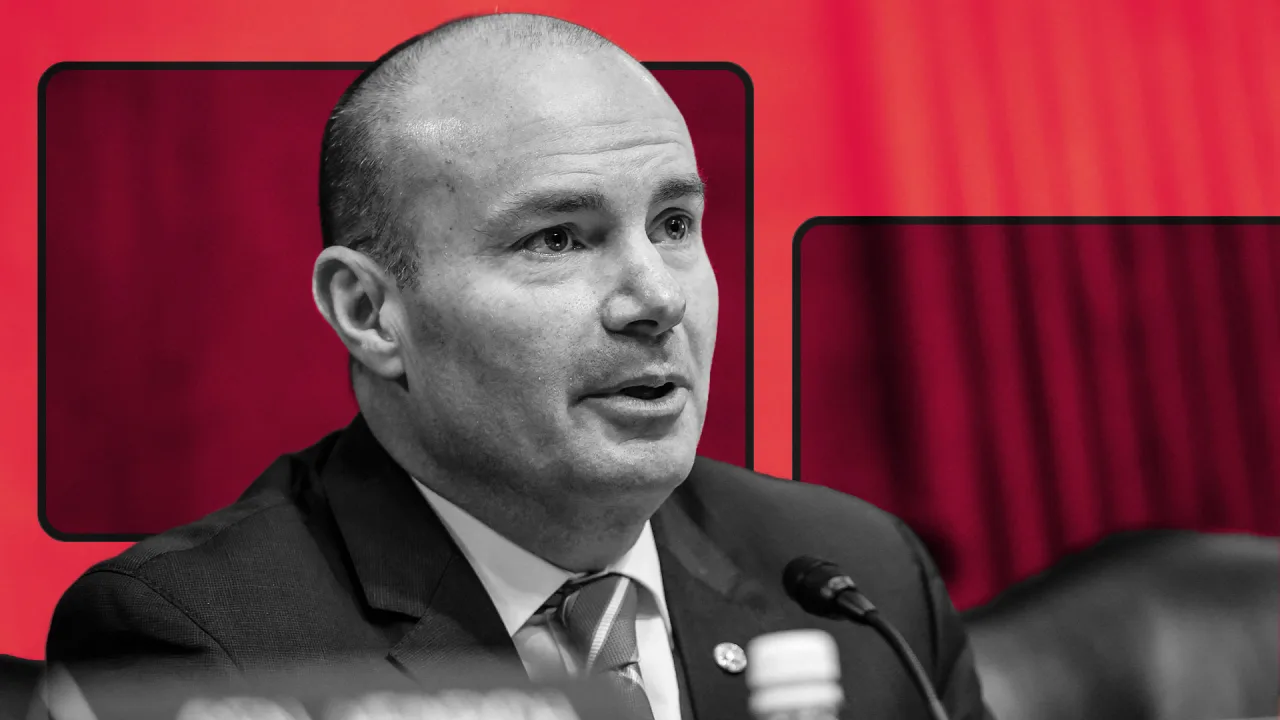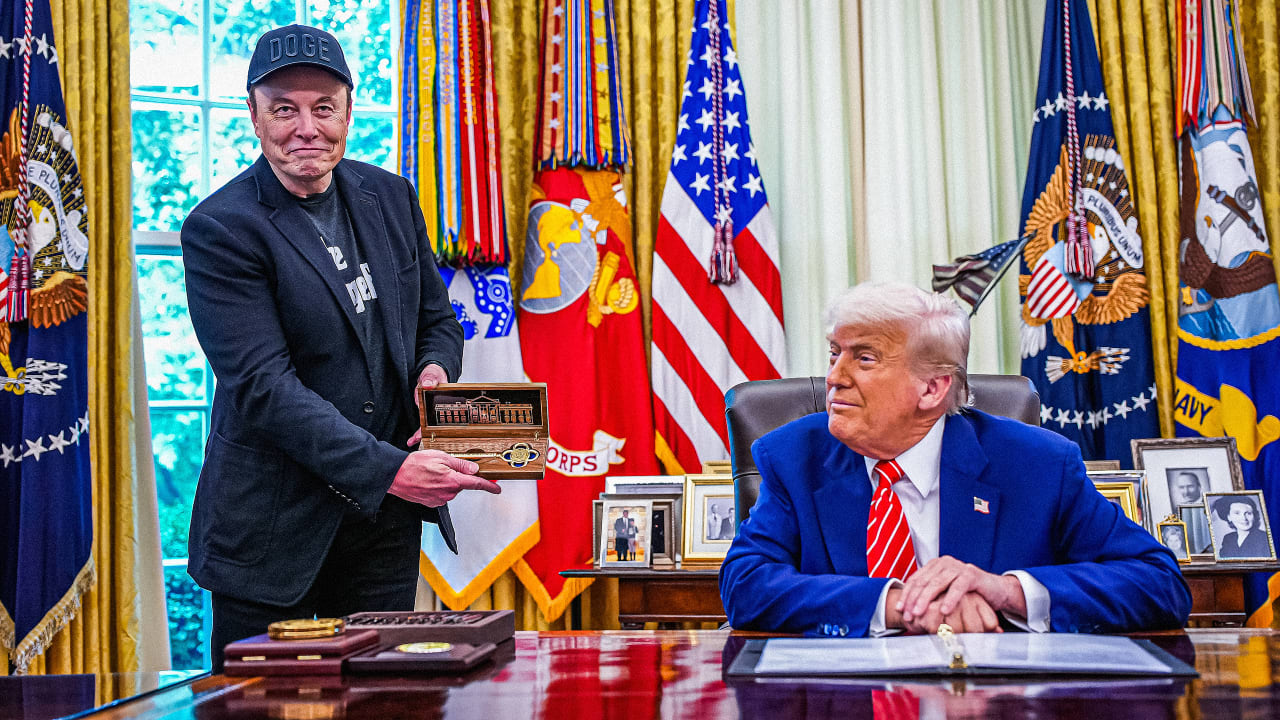Mubi’s funding backlash reveals a crisis in indie film culture
Indie streamer Mubi raised a staggering $100 million from Sequoia Capital. Then, fans started boycotting. Mubi built a loyal audience of cinephiles through breakout hits like The Substance and Decision to Leave. But after subscribers examined investor Sequoia Capital’s portfolio, many took to X to denounce the streamer. They pointed to Sequoia’s ties to Israel’s military campaign in Gaza, highlighting its investments in the Israeli defense tech startup Kela. Even after Mubi issued a public statement, its social media remains flooded with Palestinian flags and posts about canceled subscriptions. Even after Mubi issued a public statement, its social media remains flooded with Palestinian flags and posts about canceled subscriptions. The crisis raises broader questions about the financial forces shaping the indie film world. Mubi’s money crisis Founded in 2007, Mubi coasted for a decade on a loyal base of cinephiles. Then, the distributor’s films began breaking out, most notably with The Substance, the $80-million-grossing body horror starring Demi Moore. Between 2016 and 2025, Mubi jumped from 100,000 to 20 million subscribers. That growth enabled the company to invest in more films. At the 2025 Cannes festival, Mubi was a top buyer, acquiring titles like The Sound of Falling and the Jennifer Lawrence-led Die My Love. Its success also helped Mubi secure significant funding. After closing a $100 million fundraising round, the company was reportedly valued at $1 billion. The round was led by Sequoia Capital, the investment firm known for backing companies like Nvidia, Reddit, and PayPal. Sequoia also led a $10 million seed round for Kela, an AI-powered defense tech firm founded by four former Israeli intelligence officials, one of whom also worked as the general manager of Palantir Israel. That connection sparked outrage among some Mubi fans. On X, users organized a boycott of the streamer after learning about its ties to Sequoia. One protest flyer claimed that Sequoia is “deeply invested in Israel’s genocide of the Palestinian people.” As posts gained traction, Mubi issued a statement on Instagram that many fans considered inadequate. The company’s social media posts—even unrelated ones—continue to attract comments from upset subscribers. When reached for comment, Mubi sent Fast Company the same statement shared on its Instagram: “Over the last several days, some members of our community have commented on the decision to work with Sequoia given their investment in Israeli companies and the personal opinions expressed by one of their partners. The beliefs of individual investors do not reflect the views of MUBI.” How big money invaded independent filmmaking Mubi is far from alone in facing investment controversies. A24, known for films like Civil War and Moonlight, is valued at $3.5 billion. In 2024, A24 accepted $75 million from Thrive Capital, an investment firm that has also put more than $1 billion into OpenAI. Some fans were dismayed that A24, ostensibly a bastion for human-made art, would align itself with investors helping to accelerate generative video. Other independent film studios don’t just take money from large firms—they’re owned by them. Annapurna Pictures, the company behind Her and Hustlers, is owned by Megan Ellison. Megan is the daughter of Larry Ellison, co-founder of Oracle, and sister of David Ellison, CEO of SkyDance. Neon, distributor of Anora, is owned by The Friedkin Group, which invests heavily in automotive companies like Toyota. Focus Features is owned by Comcast. Sony Pictures Classics belongs to Sony. IFC Films is under AMC. Some holdouts still maintain a more independent path. Blumhouse Productions focuses on low-budget, scalable horror films, which allows it to operate without major outside investment. Briarcliff Entertainment uses its lack of financial stakeholders to support riskier projects, including The Apprentice and the Jonathan Majors-led Magazine Dreams. But most independent filmmakers cannot avoid the pull of Wall Street, Big Tech, or other powerful investors entering the entertainment world. These financial ties often leave fans in an ethical bind—an issue many Mubi subscribers are currently trying to navigate.

Indie streamer Mubi raised a staggering $100 million from Sequoia Capital. Then, fans started boycotting.
Mubi built a loyal audience of cinephiles through breakout hits like The Substance and Decision to Leave. But after subscribers examined investor Sequoia Capital’s portfolio, many took to X to denounce the streamer. They pointed to Sequoia’s ties to Israel’s military campaign in Gaza, highlighting its investments in the Israeli defense tech startup Kela. Even after Mubi issued a public statement, its social media remains flooded with Palestinian flags and posts about canceled subscriptions.
Even after Mubi issued a public statement, its social media remains flooded with Palestinian flags and posts about canceled subscriptions. The crisis raises broader questions about the financial forces shaping the indie film world.
Mubi’s money crisis
Founded in 2007, Mubi coasted for a decade on a loyal base of cinephiles. Then, the distributor’s films began breaking out, most notably with The Substance, the $80-million-grossing body horror starring Demi Moore. Between 2016 and 2025, Mubi jumped from 100,000 to 20 million subscribers. That growth enabled the company to invest in more films. At the 2025 Cannes festival, Mubi was a top buyer, acquiring titles like The Sound of Falling and the Jennifer Lawrence-led Die My Love.
Its success also helped Mubi secure significant funding. After closing a $100 million fundraising round, the company was reportedly valued at $1 billion. The round was led by Sequoia Capital, the investment firm known for backing companies like Nvidia, Reddit, and PayPal. Sequoia also led a $10 million seed round for Kela, an AI-powered defense tech firm founded by four former Israeli intelligence officials, one of whom also worked as the general manager of Palantir Israel. That connection sparked outrage among some Mubi fans.
On X, users organized a boycott of the streamer after learning about its ties to Sequoia. One protest flyer claimed that Sequoia is “deeply invested in Israel’s genocide of the Palestinian people.” As posts gained traction, Mubi issued a statement on Instagram that many fans considered inadequate. The company’s social media posts—even unrelated ones—continue to attract comments from upset subscribers.
When reached for comment, Mubi sent Fast Company the same statement shared on its Instagram: “Over the last several days, some members of our community have commented on the decision to work with Sequoia given their investment in Israeli companies and the personal opinions expressed by one of their partners. The beliefs of individual investors do not reflect the views of MUBI.”
How big money invaded independent filmmaking
Mubi is far from alone in facing investment controversies. A24, known for films like Civil War and Moonlight, is valued at $3.5 billion. In 2024, A24 accepted $75 million from Thrive Capital, an investment firm that has also put more than $1 billion into OpenAI. Some fans were dismayed that A24, ostensibly a bastion for human-made art, would align itself with investors helping to accelerate generative video.
Other independent film studios don’t just take money from large firms—they’re owned by them. Annapurna Pictures, the company behind Her and Hustlers, is owned by Megan Ellison. Megan is the daughter of Larry Ellison, co-founder of Oracle, and sister of David Ellison, CEO of SkyDance. Neon, distributor of Anora, is owned by The Friedkin Group, which invests heavily in automotive companies like Toyota. Focus Features is owned by Comcast. Sony Pictures Classics belongs to Sony. IFC Films is under AMC.
Some holdouts still maintain a more independent path. Blumhouse Productions focuses on low-budget, scalable horror films, which allows it to operate without major outside investment. Briarcliff Entertainment uses its lack of financial stakeholders to support riskier projects, including The Apprentice and the Jonathan Majors-led Magazine Dreams.
But most independent filmmakers cannot avoid the pull of Wall Street, Big Tech, or other powerful investors entering the entertainment world. These financial ties often leave fans in an ethical bind—an issue many Mubi subscribers are currently trying to navigate.


































































![https //g.co/recover for help [1-866-719-1006]](https://newsquo.com/uploads/images/202506/image_430x256_684949454da3e.jpg)






![How Smart PMs Scale Their Careers in Any Org [TPG Live Recap]](https://tpgblog.com/wp-content/uploads/2025/06/2025-06-12-thumbnail-action.png?#)
































































